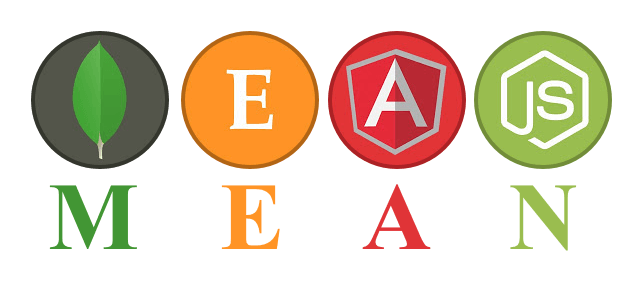- Home /
- Mean Stack
Mean Stack
About Course
- Learn front-end and hybrid mobile development, with server-side support, for implementing a multi-platform solution.
- This course deals with all things server-side. We base the entire course around the NodeJS platform. We start with a brief overview of the Web protocols: HTTP and HTTPS. We examine NodeJS and NodeJS modules: Express for building web servers. On the database side, we review basic CRUD operations, NoSQL databases, in particular MongoDB and Mongoose for accessing MongoDB from NodeJS. We examine the REST concepts and building a RESTful API

Discription
- The MEAN stack is JavaScript-based framework for developing web applications. MEAN is named after MongoDB, Express, Angular, and Node, the four key technologies that make up the layers of the stack.
- MongoDB - document database
- Express(.js) - Node.js web framework
- Angular(.js) - a client-side JavaScript framework
- Node(.js) - the premier JavaScript web server
- There are variations to the MEAN stack such as MERN (replacing Angular.js with React.js) and MEVN (using Vue.js). The MEAN stack is one of the most popular technology concepts for building web applications.
What will I learn
- Demonstrate an understanding of server-side concepts, CRUD and REST
- Build and configure a backend server using NodeJS framework
- Build a RESTful API for the front-end to access backend services
Why ?
- MEAN applications can be used in many ways with a cross platform write once approach. MEAN is particularly suited to real-time applications, particularly those running natively in the cloud and single-page (dynamic) web applications built in Angular.js, it can be used for other use cases such as:
- Workflow management tools.
- News aggregation sites.
- Todo and calendar applications.
- Interactive forums.
- Additionally, the E and A of MEAN (Express and Angular) are two of the most popular and well-supported JavaScript frameworks for back-end and front-end development, respectively. Express makes routing and managing HTTP requests and responses super easy, and includes great support for middleware to handle JSON endpoints and form posts. Angular is a powerful tool for building dynamic HTML pages that communicate with a back-end server.
Target Audience
- who want to improve their programming skills by applying industry best practices in their daily work.
- Individuals looking to learn Mean stack
- Project Managers, Software architects and Development Team Leaders, who want to implement or improve a software development process within a project, and who want to define a project or company-wide set of recommended tools and best practices.
- Project Managers, Software architects and Development Team Leaders, who want to implement or improve a software development process within a project, and who want to define a project or company-wide set of recommended tools and best practices.
Topics for this course
- Fundamentals and Introduction Of Type Script
- Basic Types
- Classes and Interfaces
- Type Definitions
- Compling Type Script
- Understanding Client Side and Server Side Web Development
- Fundamental of Ajax Development
- Advanced JavaScript
- Definition of HTML and CSS
- Applying Designs to WireFrames with HTML5 and CSS3
- Building Responsive Websites with HTML5 and CSS3
- Make HTML5 Games with No Coding Required
- Understanding HTML5 Input Types
- Getting started with Node.js
- Getting started Node Package Manager with Node.js
- Working with asynchronous programming
- Building a HTTP Server with Node.JS using HTTP APIs
- File System
- Buffers, Streams, and Events
- Buffers, Streams,Multi-Processing in NodeJS and Events
- Express JS with MongoDB and Sqlite
- Socket.io, The Front-end, and A Chat App
- Introduction to Task Managers with unit testing
- Installing angular CLI
- Angular Architecture Overview
- Creating First Angular Application
- Why use Modules
- NgModule
- Declarations
- Providers
- BootStrapping
- Course Introduction
- Introduction to NoSQL databases
- MongoDB A Database for the Modern Web
- CRUD Operations in MongoDB
- Introduction to Components
- Component Architecture Patterns
- State and Behaviour
- Inputs and Outputs
- Indexing and Aggregation
- Replication and Sharding
- Developing Java and Node JS Application with MongoDB
- Administration of MongoDB Cluster Operations
- Compose Basics
- Networks
- Volumes
- Template Expressions
- Data Bindings
- Built-in-Structural Directives
- Built-in Attribute Directives
- The Compose CLI
- Composing Compose
- Compose in Production
- Rational Databases
- SQL Querying
- Your First Queries
- Filtering Your Results
- Consolidating Your Data
- Grouping Your Data
- Joining Tables
- Subqueries
- Manipulating Your Data
- Transaction Control
- Creating Database Objects And Adding Business Logic
- Welcome to Starting with React
- React Components
- React State and Props
- React Event Handling
- Routing in React flux
- Styling React
- Course Conclusion
